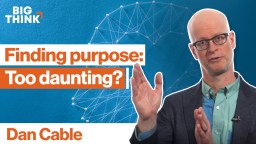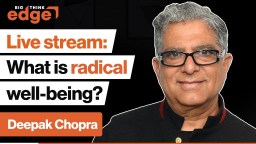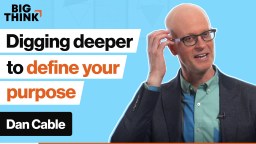Neuropsych
All Stories
Flow Research Collective COO Rian Doris explains how to harness the power of your nervous system to find your flow during a pandemic.
Young people could even end up less anxiety-ridden, thanks to newfound confidence
In order to gain more from spending time alone, it is important to be open to the benefits that solitude can bring.
It’s normal if you’re not productive in your creativity all the time. Even the greats took breaks.
▸
4 min
—
with
How does the COVID-19 pandemic affect relationships? One study aims to find out. If you have 20 minutes, take the survey!
A study finds that while musical newbies exercise the brain’s so-called creative hemisphere, pros have moved on.
Rather than trekking up a mountain, a more accurate metaphor for human development involves navigating the waters of a choppy sea.
▸
6 min
—
with
Johns Hopkins University professor Susan Carnell explains the neuroscience behind eating out of boredom (and how to stop).
Removing the pressure of finding your “dying passion” makes it easier to connect with the “why” of your work.
▸
3 min
—
with
Sexuality is fluid and it’s important that people get to define it for themselves.
Our live stream with Harvard literature professor Lisa New begins at 1 pm ET today.
▸
with
How do you overcome the tension between autonomy and solidarity?
Dr. Robert Emmons and other researchers dig into the positive mental and physical health benefits of expressing gratitude.
When you stop predicting the future and comparing the present to the past, you can reach a beneficial flow state.
▸
4 min
—
with
Research shows how “aha moments” affect the brain and cause the evolution of creativity.
Couples that handle sexual rejection well can improve their relationship, but persistent or hostile patterns of rejection are never healthy.
Playing it safe and always taking the easy road can be obstacles to happiness, says professional adventurer Erling Kagge.
▸
3 min
—
with
What subjects and ideas do you discuss with your friends when you see them?
Your fear of anxiety could be preventing you from treating your anxiety, according to new Penn State research.
Don’t let a crisis be wasted. Use this moment to find meaning, purpose, and to refocus on self-care that will improve your mindset and relationships.
▸
with
Neurons that store abstract representations of past experiences are activated when a new, similar event takes place.
Researchers advise using emojis to improve communication under coronavirus isolation.
Our lives have been transformed by the coronavirus pandemic. How can we successfully adapt to the new demands and rules of a society that is sheltering in place? What can […]
▸
with
If you surreptitiously pick your nose, chances are that everyone can see you doing it.
Combining various mindfulness-based interventions (MBIs) can have numerous health benefits, according to new research.
How you think about your work alters your relationship to it.
▸
3 min
—
with
Music, journaling, and spending time with your pets are all science-backed ways to boost mental health during stressful times.
How can you give and receive more productive feedback? Form a psychological contract with a trusted partner.
▸
3 min
—
with
A clean work space, plants, and putting on the right pants all make working from home easier, according to science.





























